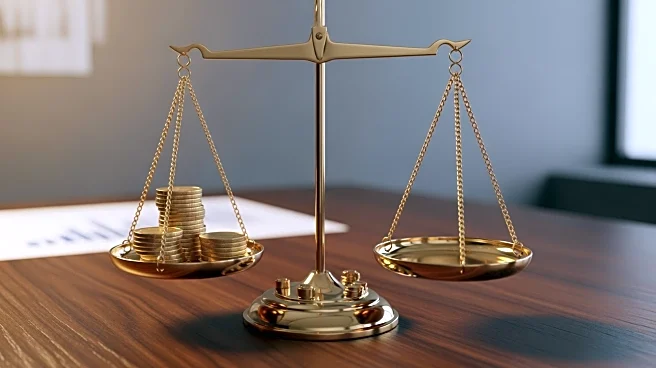What's Happening?
In an ongoing trial at an Abuja High Court, a prosecution witness testified regarding the alleged involvement of former Taraba State Governor, Darius Ishaku, in a N27 billion fraud case. The Economic and
Financial Crimes Commission (EFCC) has charged Ishaku and Bello Yero, a former Permanent Secretary, with criminal breach of trust, conspiracy, and conversion of public funds. The witness, Ismail Lawal, who previously served as Ishaku's personal assistant, stated during cross-examination that Ishaku's name did not appear in the transaction details related to the alleged diversion of funds. The funds in question were reportedly moved from the state's Bureau of Local Government and Chieftaincy Affairs to private accounts, including Worthy Construction Limited, a company linked to Ishaku. Both defendants have pleaded not guilty to the charges.
Why It's Important?
This case highlights significant issues of governance and accountability within Nigerian state administrations. The allegations of misappropriating public funds underscore the challenges in managing state resources and ensuring transparency. The outcome of this trial could have broader implications for public trust in government institutions and the enforcement of anti-corruption measures. If the charges are proven, it could lead to stricter oversight and reforms in financial management within state governments. Conversely, if the defendants are acquitted, it may raise questions about the effectiveness of current anti-corruption strategies and the judicial process in handling such high-profile cases.
What's Next?
The trial is set to continue with further cross-examinations and testimonies. The court has adjourned the case until Thursday, where more evidence and witness statements are expected to be presented. The proceedings will be closely watched by stakeholders, including political analysts and civil society groups, who are keen to see how the judiciary handles this significant corruption case. The outcome could influence future legal and policy frameworks aimed at curbing corruption in Nigeria.









